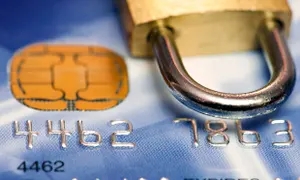
A PIN (Personal Identifications Number) is a security code attached to your debit card, credit card or prepaid card.
When you use your card, you must supply your PIN to verify your identity, the PIN adds an additional layer of security to your account. It is important to keep your PIN number private, if your card is lost or stolen and the thief has your PIN, they have access to your accounts.
Most banks let customers choose their own PIN number. Whether there is one person on the account or several, each person will be assigned their own debit card and, also their own PIN number.
How to Protect your Card & PIN
Keep Your Purse & Wallet Safe
In public settings, never leave your wallet/purse or bag unattended, it only takes a few seconds for a thief to grab them. Keep the zipper closed on your purse and don’t carry a bag that does not shut securely, draw string or flap closures do not offer enough protection. Don’t carry a backpack as a thief can easily steal from a backpack without you even being aware. Don’t leave your purse or wallet in your car, even if it is locked. Consider a purse with an over the shoulder strap, or one that you carry around your waist as opposed to a handbag or bag that just rests on your shoulder. Grab and go thieves are looking for something that is easy to snatch from you. Consider buying an anti-theft bag or wallet. Some offer protection against RFID (Radio-Frequency Identification) reading devices. Some have anti-slash fabric or wire webbing and a locking system for zippers and straps.
Never write your PIN on your Card
If your card is lost or stolen this gives the person who has the card full access to your accounts.
Don’t Write it Down & Carry it With You
Having a written copy of your PIN in your purse or wallet is a security hazard. Instead use a password manager on your phone to securely store your PIN.
Keep it Private
Don’t share your PIN with anyone. No one should ask for your PIN, if they do don’t provide it. When you make a payment using a card you may be asked for the CVV number (Card Verification Value) This code is usually composed of a three-digit number. CVV and PIN numbers both add a layer of security to your accounts, PINs for credit cards are used for cash advances; PINs for debit cards are used to withdraw cash or initiate an offline purchase.
Never provide your PIN in response to email, text, or phone call requests. Phishing scams often ask for payment and financial information including PIN numbers. Delete these types of messages and never respond to them.
Shield your PIN
Be cautious and aware when entering your PIN, if someone is hovering close by don’t use your card. Cover the keypad with your hand so that no one can see the numbers you are entering. Also, be cautious of “card skimmers” these are used by criminals to lift card details and they find your PIN by using a camera or watching while you enter it.
Contact your bank or credit card company immediately if an ATM takes your card but does not give it back. This could indicate a skimmer is being used.
Choose a Unique PIN for Each Card
When choosing a PIN don’t use the same PIN for multiple cards, each one should have a different PIN. And don’t use the card PIN for anything else such as unlocking your mobile phone, tablet, computer or any other device.
Don’t Choose a PIN That is Easy to Guess
Never choose a PIN that is easy to guess such as your house number, meaningful date, digits in your social security number or phone number or anything else that is personal to you. Don’t use a generic PIN like “0000” or “1234” that is easy for criminals to guess.
Do choose something you can remember and store it in a home safe or password manager in case you forget it. One way to choose a PIN that you can remember is to choose a 4-letter word and then use the keypad to spell the word that represents your PIN.
Use a Credit Card
It is better to use a credit card when making purchases. A credit card offers much more protection and is not tied directly to your bank account. Use your debit card for cash withdrawals.
Monitor Your Accounts
Regularly monitor your bank accounts and credit card accounts for any suspicious activity that could indicate unauthorized access. If you suspect someone may know your PIN contact your bank or credit card company and request a new card and PIN. Setup account alerts so that you are notified of all transactions and other activity.